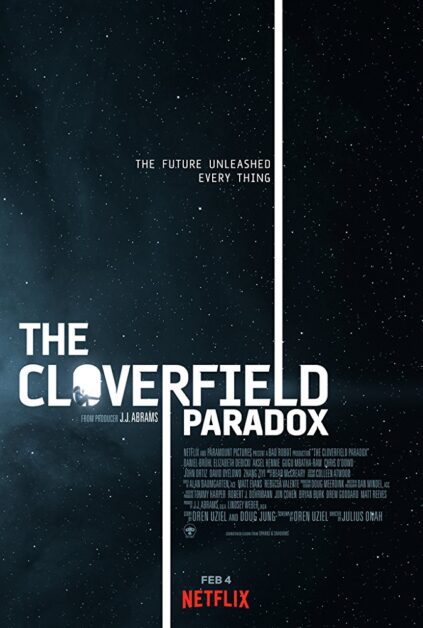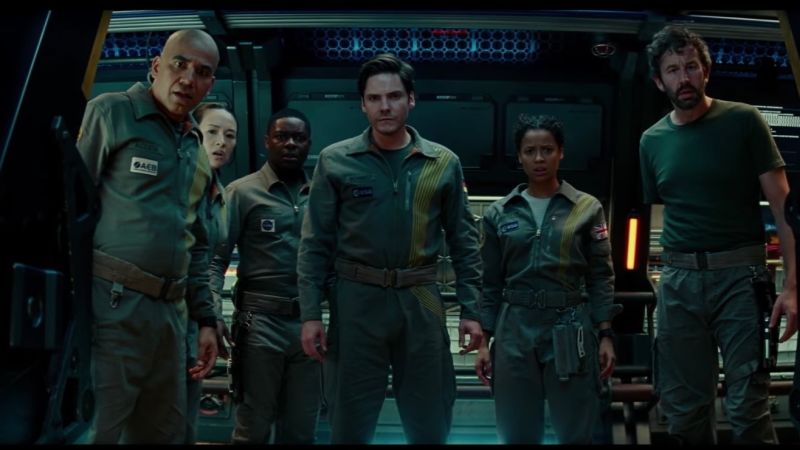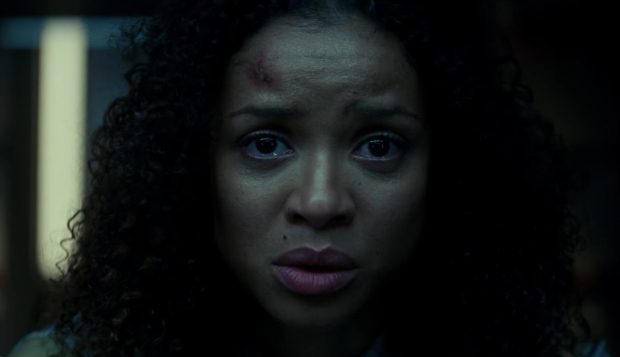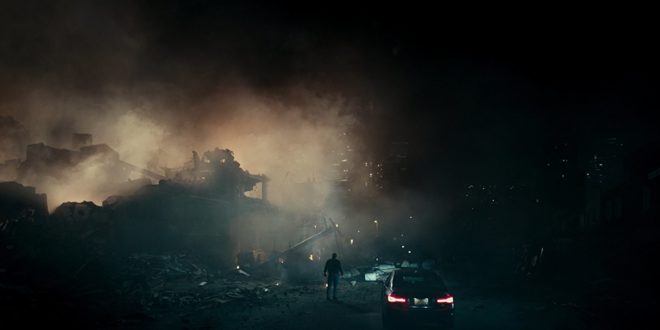Secrecy and speculation have been the key to the success of the Cloverfield franchise. As one of the first films to truly utilize viral marketing, the 2008 Matt Reeves directed Cloverfield generated unprecedented buzz with its fictitious products (Slusho, anyone?) and mysterious websites containing seemingly nonsensical puzzles.
Its sequel, 2016’s 10 Cloverfield Lane, was no different. This time, marketing highlights included a guide on how to survival when living in a bunker, a photo-based social media website called FunAndPrettyThings, hidden packages which could only be found using coordinates and a text-based Survival Simulator.
But it’s The Cloverfield Paradox which shocked the world with its spontaneous release through streaming giant Netflix; mere hours after the first trailer arrived during NFL’s Superbowl, the final product was available to watch instantly. Whether this was the plan all along or if its troubled production played a factor is anyone’s guess, but this method certainly paid off as interest in the franchise is at an all-time high.

Set in the near future, The Cloverfield Paradox sees Earth suffering from a catastrophic energy crisis. A multi-national team of astronauts aboard a space station are on a mission to perfect the Shepard particle accelerator which, if successful, would result in an unlimited supply of energy for the planet. Critics of the project argue that such a high-powered beam could result in a tear of space/time fabric and open this dimension to others, potentially letting in the monstrous creatures that lurk there.
After two years of no luck with the accelerator, it finally works – but the system overloads and causes a massive power surge to the station. Almost instantly following this, events take a downward turn as the crew discovers the devastating consequences of their actions.
The first two installments in the Cloverfield universe are vastly different from each other: Cloverfield is a destruction-filled found footage monster movie which sprawls all over New York while 10 Cloverfield Lane is a more restrained and taut thriller set in the confined spaces of an underground bunker. The common thread linking the two movies does not show itself until late in the final act of Cloverfield Lane and in true Cloverfield fashion, the conclusion raises more questions than it answers.

The Cloverfield Paradox continues the tradition of being an unconventional sequel by changing up almost every aspect: the location is now a slick, overly complicated looking ship in Outer Space, the characters are new introductions to the franchise and the threat isn’t what you expect it to be. Even the genre changes, as this is a straight-up futuristic science fiction picture. There are far more frequent and direct references to the original, however, which is a welcome inclusion since the second entry only really tied into the Universe in the last ten minutes. That’s not to say The Cloverfield Paradox isn’t its own movie too – don’t expect all the answers to the 10-year-old burning questions you’ve had regarding the monster or the logistics of it all.
Character-wise, the film doesn’t spend too much time developing any substantial personalities among the crew. The group is as clichéd as they come; in fact, as soon as you see them you’ll most likely to be able to predict how their character arcs and motivations will play out. Chris O’ Dowd is undoubtedly the highlight as the sarcastic and cynical Mundy, providing some much-needed comic relief, while Daniel Bruhl is underused as Schmitt, as is critically acclaimed actor David Oyelowo who simply isn’t given enough time or material to shine. Aksel Hennie, Ziyi Zhang, and Elizabeth Debicki round out the perfectly capable cast who also suffer from underwritten parts. But it’s crew member Hamilton (Gugu Mbatha-Rawas) who gets the bulk of narrative focus as she worries about her husband Michael (Roger Davies) who she left behind. It’s not a particularly investing subplot, but it’s the only one that has any potential for emotional gravitas and there are a few moral dilemmas raised by her plight.

Speaking of Hamilton’s husband, the film heads back down to Earth a few times as we see some strange goings-on through the eyes of Michael. Unfortunately, these instances are where the film really falters, as Michael’s admittedly dull and unsatisfying journey hinders The Cloverfield Paradox more than it forwardly propels it.
It’s a shame too that the story isn’t as surprising as its genius marketing strategy. While there are some gruesome moments of body horror that occasionally ventures into the comically bizarre, The Cloverfield Paradox hits all the typical and tired beats as seen in countless ‘spaceship-gone-wrong’ movies. Thankfully though, it does them well and to its credit, the film’s pace is as urgent as the crew’s mission to save Earth meaning its lean 100-minute runtime flies by before you can say ‘Higgs boson’.
Ultimately, The Cloverfield Paradox is an entertaining albeit narratively unoriginal film which continues to tear the fabric of the franchise, suggests fresh directions and opens endless possibilities for future entries. Its anthology nature is beginning to become clearer too and now that it has found a home with Netflix, I’d love to see a series like Black Mirror or The Twilight Zone that tackles other angles in the Cloverfield Universe.
The final scene hints at MUCH bigger things to come and with another entry already slated for release in 2018, we’re already counting down the days until it’s casually sprung on us.
 PopHorror Let's Get Scared
PopHorror Let's Get Scared




